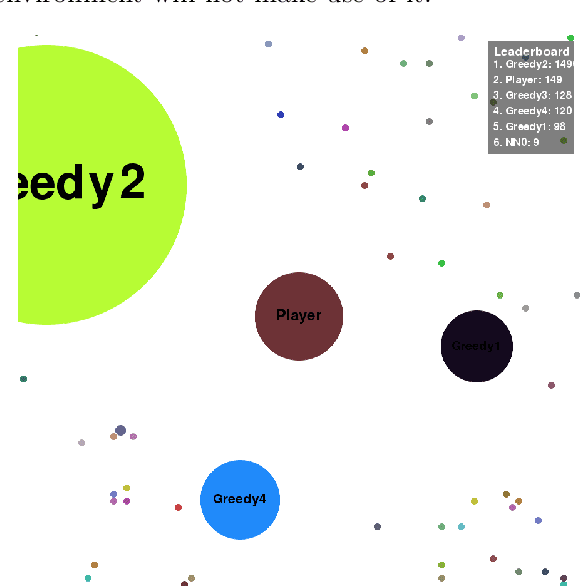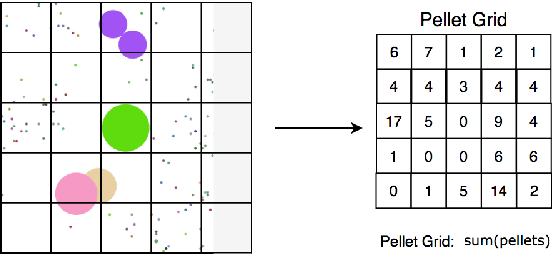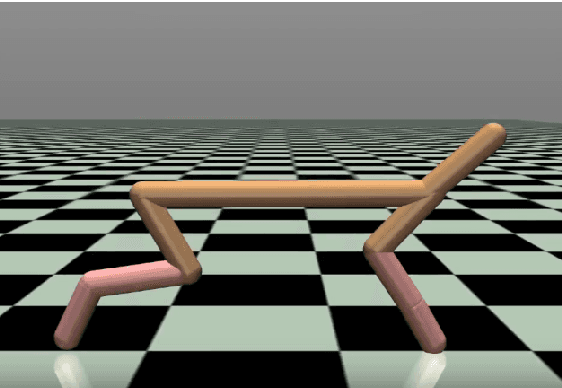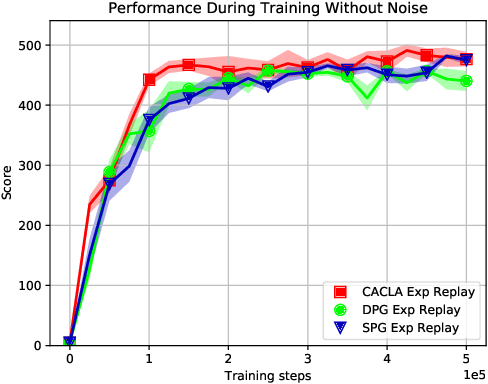Investigation on the generalization of the Sampled Policy Gradient algorithm
Paper and Code
Oct 09, 2019



The Sampled Policy Gradient (SPG) algorithm is a new offline actor-critic variant that samples in the action space to approximate the policy gradient. It does so by using the critic to evaluate the sampled actions. SPG offers theoretical promise over similar algorithms such as DPG as it searches the action-Q-value space independently of the local gradient, enabling it to avoid local minima. This paper aims to compare SPG to two similar actor-critic algorithms, CACLA and DPG. The comparison is made across two different environments, two different network architectures, as well as training on on-policy transitions in contrast to using an experience buffer. Results seem to show that although SPG does often not perform the worst, it doesn't always match the performance of the best performing algorithm at a particular task. Further experiments are required to get a better estimate of the qualities of SPG.
 Add to Chrome
Add to Chrome Add to Firefox
Add to Firefox Add to Edge
Add to Edge